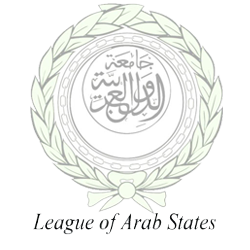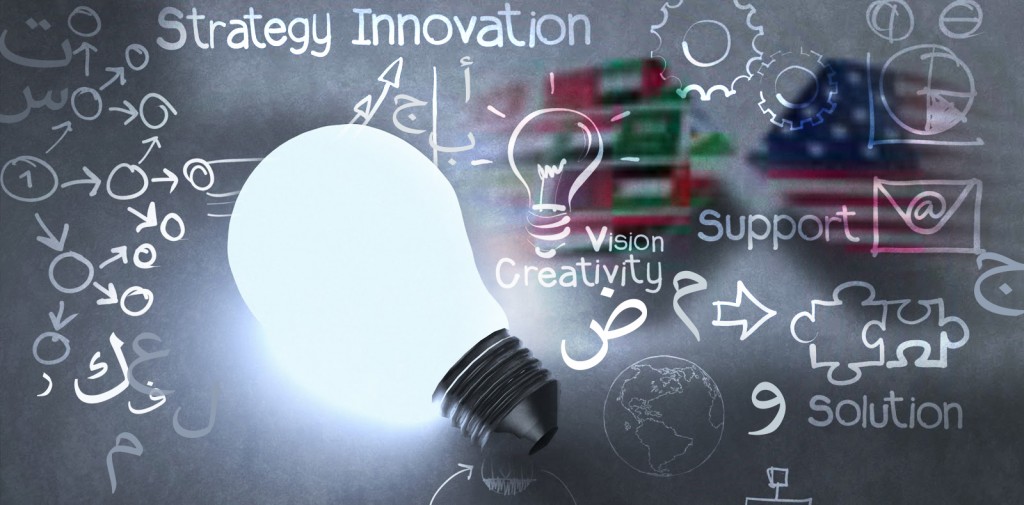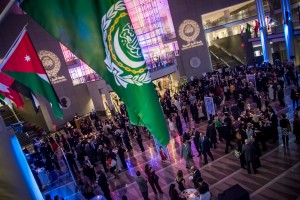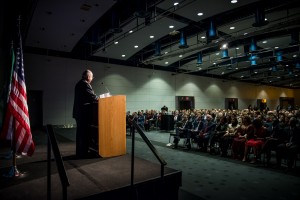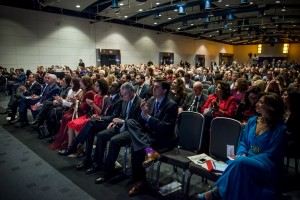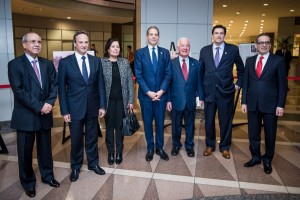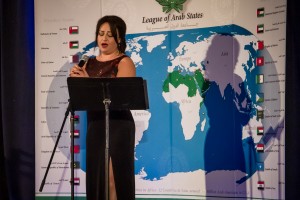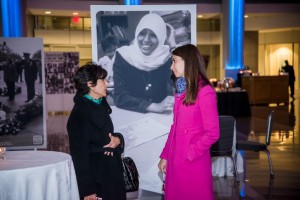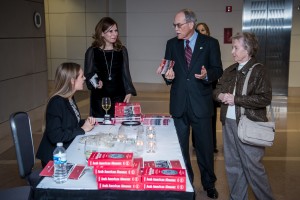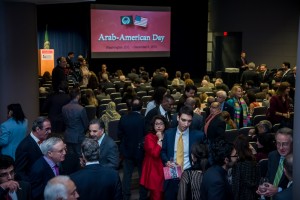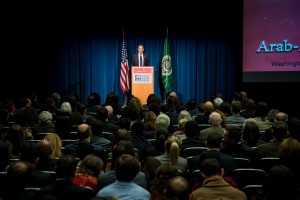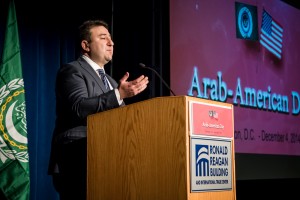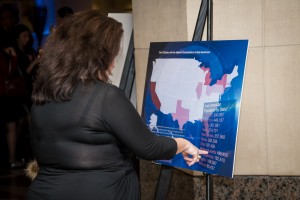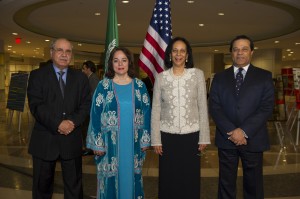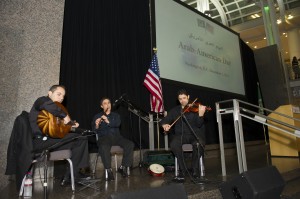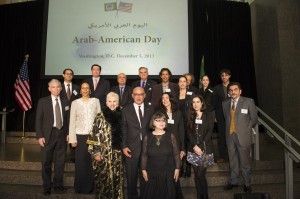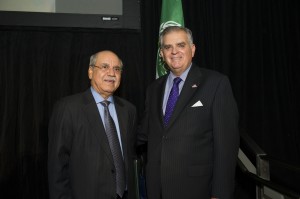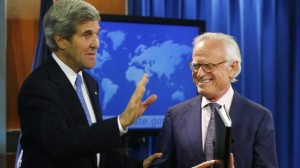In The News
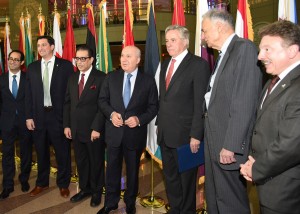
Arab-American Day 2015
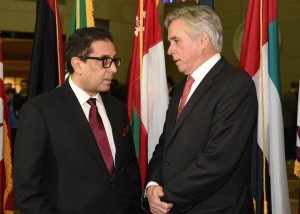
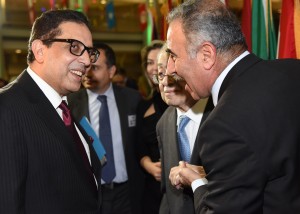
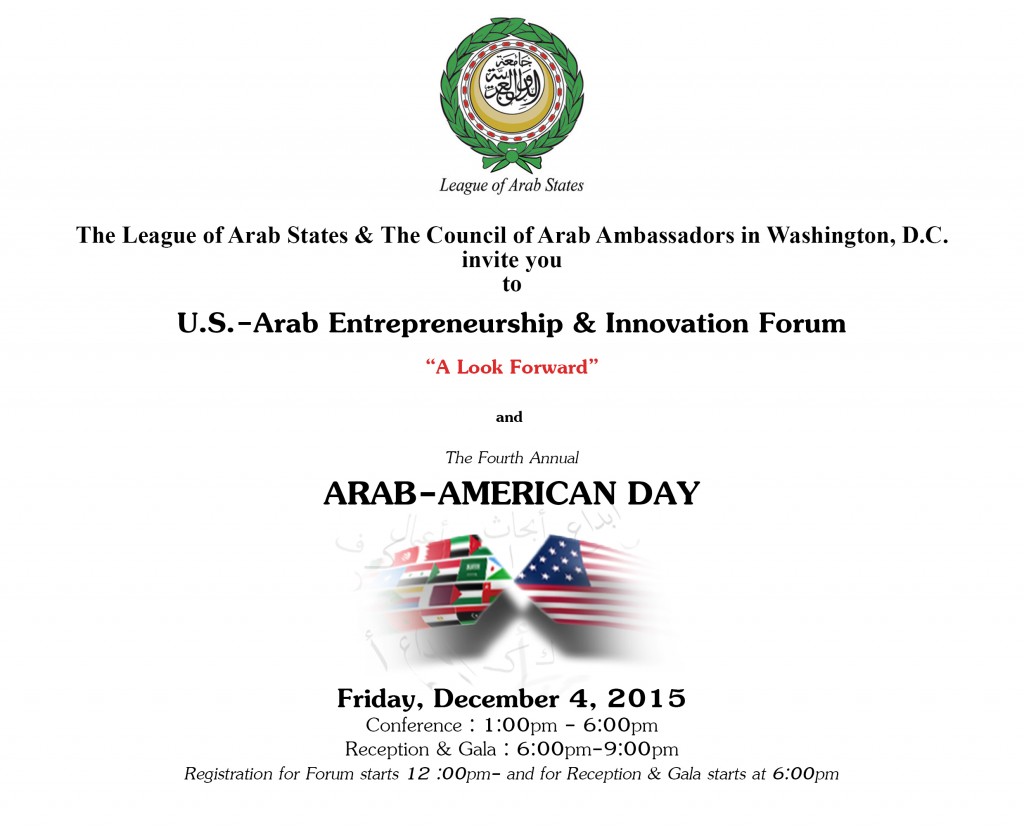 FULL PROGRAM- Click banner below
FULL PROGRAM- Click banner below
Register to attend the Panels of the Forum. Please click here
*********************************************************************************************************
Third Arab-American Day 2014 – Exhibition of Arab-American History/Services & Contributions
Held on December 4, 2014 at the Ronald Reagan Building and International Trade Center – Washington, D.C.
The Arab League celebrates the Second Annual Arab-American Day in Washington, D.C. December 5, 2013
at the Ronald Reagan Building and International Trade Center
Secretary of State John Kerry says Israeli and Palestinian negotiators have agreed to meet again for peace deal
July 30, 2013: Secretary Kerry delivers remarks on the Middle East Peace Process Talks, at the Department of State. Israeli Justice Minister Tzipi Livni and Palestinian chief negotiator Saeb Erekat will also be in attendance.
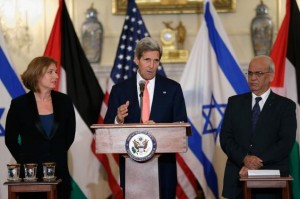
Speaking as the two sides wrapped up an initial round of talks on Tuesday, Kerry said they were committed to “sustained, continuous and substantive negotiations on the core issues” that divided them.
Remarks on the Middle East Peace Process Talks: http://video.state.gov/en/video/2575049650001/remarks-on-the-middle-east-peace-process-talks/s~creationDate/p~1/
****************************************************
Secretary Kerry Names Ambassador Martin Indyk
as Special Envoy for Israeli-Palestinian Negotiations
July 29, 2013: Secretary Kerry announces that Ambassador Martin Indyk will serve as the U.S. Special Envoy for Israeli-Palestinian Negotiations.
************************************************
Press Availability in Amman, Jordan
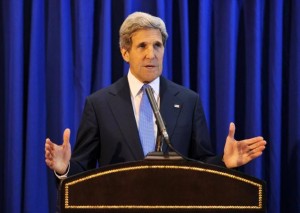
Secretary Kerry (July 19): “On behalf of President Obama, I am pleased to announce that we have reached an agreement that establishes a basis for resuming direct final status negotiations between the Palestinians and the Israelis.”
Press Availability
PRN: 2013/T10-03
SECRETARY KERRY: Good evening, everybody, thank you very much for your patience. I apologize for the delay. I’m just going to make a statement, and I’m not going to take any questions at this point in time.
On behalf of President Obama, I am pleased to announce that we have reached an agreement that establishes a basis for resuming direct final status negotiations between the Palestinians and the Israelis. This is a significant and welcome step forward.
The agreement is still in the process of being formalized, so we are absolutely not going to talk about any of the elements now. Any speculation or reports you may read in the media or elsewhere or here in the press are conjecture. They are not based on fact because the people who know the facts are not talking about them. The parties have agreed that I will be the only one making further comments about this.
If everything goes as expected, Saeb Erekat and Tzipi Livni, Minister Livni, and Isaac Molho will be joining me in Washington to begin initial talks within the next week or so, and a further announcement will be made by all of us at that time.
I want to thank particularly His Majesty King Abdullah and the Hashemite Kingdom of Jordan, and the Foreign Minister Nasser Judeh, who has been really enormously helpful throughout this process. I want to thank all of them for their extraordinary hospitality to our team that has been camped here for several days, and they have helped with all of the logistics and been superb hosts and collaborators in this effort.
I also want to thank the Arab League and the committee, the joint committee – the committee with respect to the peace initiative follow-on — who traveled here during the week and who made an important difference with their statement of support.
And then there are many, many others who have contributed, many other leaders around the world, all of whom have visited here and pushed and advocated and encouraged the notion that these talks could take place. There are too many to list, but they know who they are and we are very, very grateful. It will take their ongoing effort in order to be able to have any chance of making these talks the kind of success they ought to be.
I think all of us know that candid, private conversations are the very best way to preserve the time and the space for progress and understanding when you face difficult, complicated issues such as Middle East peace. The best way to give these negotiations a chance is to keep them private. Everyone knows that this is not easy. If it were, it would’ve happened a long time ago. And no one believes that the longstanding differences between the parties can be resolved overnight or just wiped away.
We know that the challenges require some very tough choices in the days ahead. Today, however, I am hopeful. I’m hopeful because of the courageous leadership shown by President Abbas and Prime Minister Netanyahu. Both of them have chosen to make difficult choices here, and both of them were instrumental in pushing in this direction. We wouldn’t be standing here tonight if they hadn’t made the choices.
I’m most hopeful because of the positive steps that Israelis themselves and Palestinians are taking on the ground and the promise that those steps represent about the possibilities of the future. The path to resolution of this longstanding conflict in this critical corner of the world, that path is not about fate. It’s about choices, choices that people can make. And this is not up to chance. It’s up to the Israeli people and the Palestinian people and no one else.
So knowing that the road ahead will be difficult and the challenges that the parties face are daunting, we will call on everybody to act in the best of faith and push forward. The representatives of two proud people today have decided that the difficult road ahead is worth traveling and that the daunting challenges that we face are worth tackling. So they have courageously recognized that in order for Israelis and Palestinians to live together side by side in peace and security, they must begin by sitting at the table together in direct talks.
I thank those leaders. I thank all those who have worked so hard, my team especially, who have been part of this. And I look forward to seeing my friends from this region in Washington next week or very soon thereafter. Thank you very much.
*********************************************************************
Remarks at the Ramadan Iftar Dinner
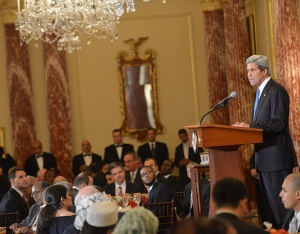
Remarks
Most importantly – and I say this without any artifice – every single one of you were invited here because you are all doers. You are all active. You’re all engaged. You’re all involved in trying to make the world a better place, and you’re all involved in reaching out to other people and practicing, if not your faith, certainly practicing the best tenets of how human beings can live together.
And we are celebrating the holiest month of the Muslim calendar year, Ramadan. It is a time for peaceful reflection and for prayer. It is a time for acts of compassion and charity. So to all of you tonight, and to the millions of American Muslims across our land, and to the many more around the world, Ramadan Kareem.
I want to – (applause) – thank you. You can clap for Ramadan Kareem. (Applause.)
I want you to know that the tradition of sharing respect for this particularly holy month actually reaches back to the earliest days of our Republic. This is the Benjamin Franklin Room, and it’s a fitting venue for this occasion because Ben Franklin was really our first formal diplomat. And he was also among the earliest proponents of religious freedom in our country. He wrote in his autobiography, “Even if the Mufti of Constantinople were to send a missionary to preach Mohammedanism to us, he would find a pulpit at his service.”
***************************************************************
Total Visit







Arab League in Washington, D.C.
Washington DC. 20036
Telephone- (202) 265-3210
Fax: (202) - 331-1525

Receive our updates
Oops! We could not locate your form.










